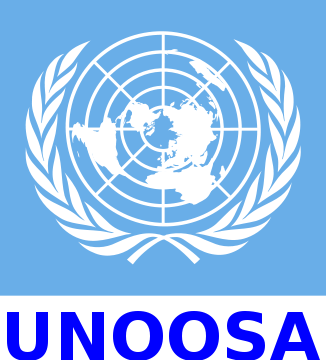I have been blogging about the United Nations and the body of international space law. The United Nations created the United Nations Office for Outer Space Affairs (UNOOSA) in 1958 to serve as a group of experts to provide advice to the new ad hoc Committee on the Peaceful Uses of Outer Space. It became an agency within the Department of Political and Security Council Affairs (DPSCA) in 1962 when the Committee on the Peaceful Uses of Outer Space became a permanent U.N. committee. In 1968, the Office became the Outer Space Affairs Division of the DPSCA. In 1992, it turned into the Office for Outer Space Affairs in the DPSCA.
The duties of the UNOOSA include: "performs functions of the Secretariat of the United Nations Committee on the Peaceful Uses of Outer Space and its Scientific and Technical and Legal Subcommittees; coordinates the inter-agency cooperation within the United Nations on the use of space technology; implements the United Nations Program on Space Applications; maintains coordination and cooperation with space agencies and intergovernmental and non-governmental organizations involved in space-related activities. The Office maintains, on behalf of the United Nations Secretary-General, the Register of Objects Launched into Outer Space."
An important program under the control of UNOOSA is called the UN-SPIDER program which stands for United Nations Platform for Space-based Information for Disaster Management and Emergency Response. It is projected that climate change will bring increases in natural disasters such as hurricanes and tornados. "Earthquakes, floods, storms, and other natural hazards cause massive disruption to societies and overburden national economic systems." Better information about risks and actual occurring disasters could reduce loss of life and destruction of property. In 2006, the U.N. passed a resolution that "acknowledged that use of existing space technology, such as earth observation and meteorological satellites, communication and navigation satellites can play a major role in supporting disaster management by providing accurate and timely information for decision making."
The UNOOSA has a mandate to monitor legal, scientific and technical developments with respect to space activities, technology and applications so it can provide technical information and advice to member states, international organizations and other United Nations offices. In pursuit of these goals, the UNOOSA created the International Space Information Service to annually publish directories, documents and other types of publications for distribution. A web-site was put in place in 1996 to disseminate information.
The UNOOSA has responded to the movement from scientific exploration of space to the use of space technology for economic and social development. It is specifically charged with assisting developing countries in using space technology to assist in their development. This includes helping developing countries to create their own indigenous space launch capabilities.
With the accelerating evolution of space technology and launches of satellites, it is beneficial to the citizens of the world for the United Nations to have programs in place to encourage space faring nations to share the fruits of space exploration and exploitation.
